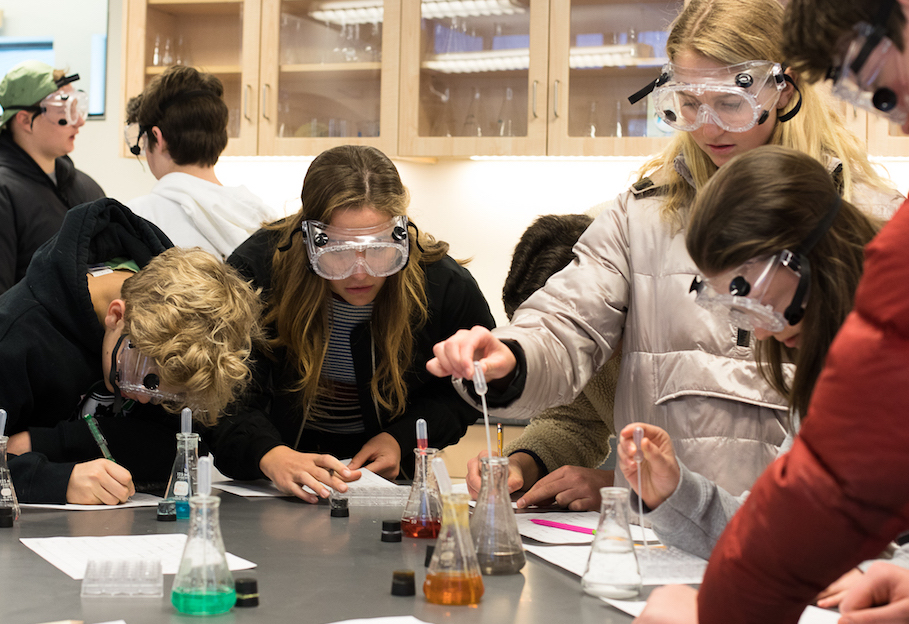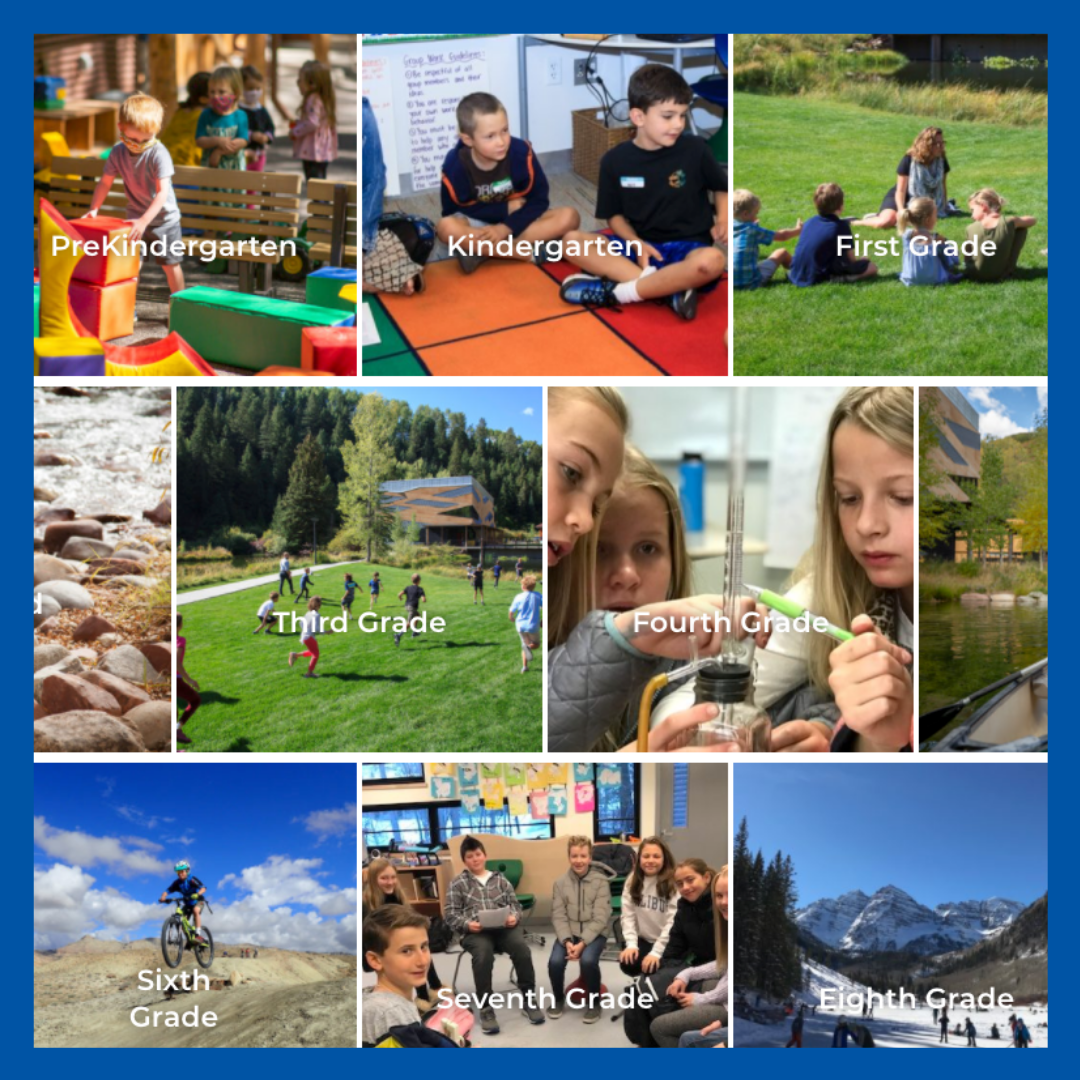Science
As a result of an Aspen Country Day School education, students will:
- use and communicate scientific knowledge
- understand the fundamental concepts and principles of science and relate to their everyday lives
- develop their natural curiosity about the world to increase understanding of science
- develop their understanding of how man impacts the rest of the natural world
- apply knowledge of scientific method to solve problems
- effectively gather, compile and interpret data to draw conclusions
Country Day students become scientists in the best possible way — through hands-on experimentation, project-based learning, and guidance from skilled teachers. The science department focuses on all three areas of science study: Earth science, life science, and physical science at different intensities depending on the grade and age of the students.
The Lower School science program is designed to capture and nurture the natural curiosity of children. The year’s activities may include a trip to a local greenhouse to see plant biology at work, an exploration of geologic forms during a hike on Outdoor Ed, or hands-on engineering projects designing and building electrical circuits in Fifth Grade.

As young scientists move into the Middle School, they focus on one particular aspect each year. In Sixth Grade, students study Earth science, exploring topics such as geology and hydrology. Seventh Graders study life science, covering cells, classification, and evolution. In Eighth Grade, students participate in an Environmental Chemistry and Physics class, applying their knowledge of atomic structure and physical laws to investigate issues of energy, the environment, and global challenges. They practice skills of engineering and design thinking to approach these challenges. The overall goal of the department is to have the students explore all the areas of science through project-based learning.

